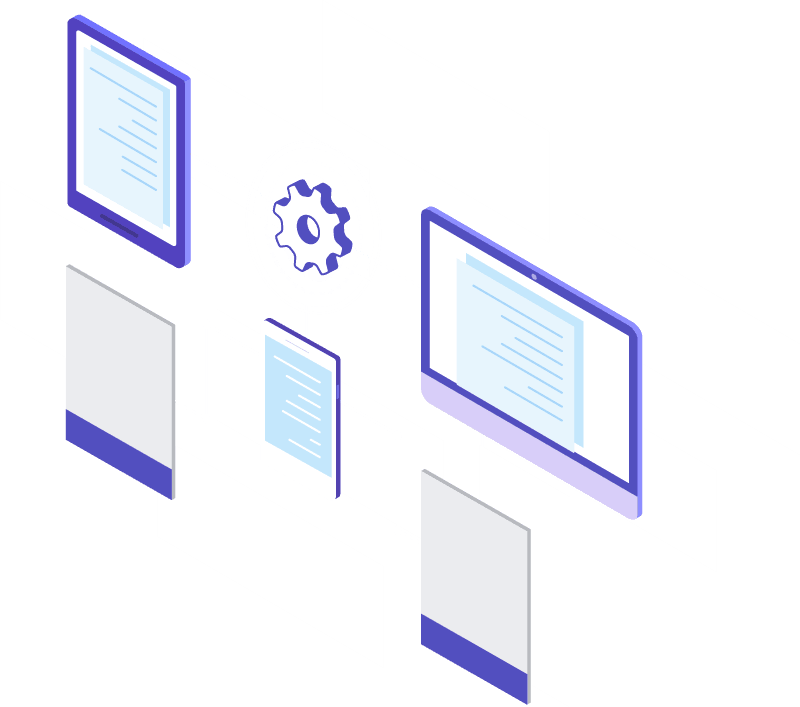course development
-
Learner-Centered Approach: Placing the learner at the center of the design process by understanding their needs, prior knowledge, learning preferences, and goals. This ensures that the instructional content is relevant, meaningful, and engaging to the target audience.
-
Clear Learning Objectives: Defining specific and measurable learning objectives leveraging the Bloom taxonomy that outline what learners should be able to do or understand after completing the instructional program. Well-defined objectives help guide the design and assessment of the learning experience.
-
Engaging Content and Activities: Incorporating diverse and interactive learning materials, such as multimedia, simulations, case studies, and hands-on activities, to keep learners engaged and motivated throughout the learning process.
-
Effective Sequencing and Structure: Organizing the instructional content in a logical and progressive manner to facilitate comprehension and retention. A well-structured curriculum ensures that learners can build upon their knowledge systematically

Completed Projects
CIS1513C : PROJECT MANAGEMENT FUNDAMENTALS
This course examines the organization, planning, and controlling of projects and provides practical knowledge on managing project scope, schedule, and resources. Topics include project life cycle, work breakdown structure and Gantt charts, network diagrams, scheduling techniques, and resource allocation decisions. Concepts are applied through team projects and tutorials using project management software. Practice will also be provided to thoroughly prepare students for the Project+ certification exam offered by CompTIA.
ISM3314C : APPLIED PROJECT MANAGEMENT
This course will enhance an understanding of Project Management through applied projects. Students will engage in project selection and initiation, work breakdown structure and scope management, scheduling, budgeting and cost analysis, quality control, project communication plans, project risk analysis, resource leveling, and procurement issues. All activities will support the Project management Institute (PMI) global standards and the Project Management Body of Knowledge (PMBOK) standards.
CTS1214C: PROJECT MANAGEMENT APPLICATIONS AND TOOLS
In this course, students will learn to manage project resources, task assignments and scheduling using industry relevant application tools in support of workforce skills, They will also learn best practices and techniques used to tracking and manage projects. The course covers a combination of applications, to include waterfall, and agile project management environments.
ISM2308C : AGILE FUNDAMENTALS
This course will cover the Agile mindset, values, principles, and general concepts. Students will explore what it means to “be agile while doing agile” and achieve professional agility. The course is the foundation of Project Management Delivery and does not include a specific focus on a particular agile methodology or framework. A focus will be provided to the International Consortium for Agile (ICAgile) content domains for the Agile Fundamentals professional certification (ICP).
Students will understand the history of the agile movement, the distinctions among Agile values, principles, and practices, key aspects of value-driven development, adaptive planning techniques, and how to cultivate collaboration with customers, within organizations, and within teams.
ISM4318C: AGILE PRACTITIONER
This course will cover the knowledge of agile principles and improve skills with agile techniques. Students will explore many approaches to agile, such as Scrum, Kanban, Lean, extreme programming (XP) and test-driven development (TDD.) A focus will be given to Project Management Institutes (PMI) content domains for certification for agile practitioners, known as the PMI Agile Certified Practitioner (PMI-ACP).
ETI1622C: FUNDAMENTALS OF SIX SIGMA
This course provides students with an introduction to Lean and Six Sigma. A comprehensive overview of the Lean and six sigma methodologies including Define, Measure, Analysis, and Control will be presented. The ultimate goal is to prepare students for the Yellow Belt certification. General Course Outcomes Describe or Identify the basic concepts of Lean Recall team dynamics Demonstrate the key elements of the Six Sigma “Define” Phase Demonstrate the key elements of the Six Sigma “Measure” Phase Differentiate key elements of the Six Sigma “Analyze” Phase Demonstrate the key elements of the Six Sigma “Control” Phase Apply concepts in the comprehensive final exam
ETI2610C: PRINCIPLES OF SIX SIGMA
This course provides students with an introduction to the basic principles and theories of Six Sigma as used in the continual improvement process. The course examines the tools most common to six sigma projects and how and when to use them. Course coverage focuses on measurement methods, data collection, data integrity, and graphical methods of presenting findings.
ETI2623C: LEAN MANUFACTURING
This course provides students with an overview of lean manufacturing concepts and a working knowledge of the tools required to implement and maintain a lean manufacturing facility. Course coverage includes mistake proofing, the 5Ss for operators, quick changeover, overall equipment effectiveness (OEE), cellular manufacturing, and the Kanban system.
CIS2910C: ENTREPRENEURSHIP CAPSTONE
This capstone course is designed for the student to demonstrate his/her knowledge and skills applicable to IT entrepreneurship. The course is designed as a project-based experience focusing on an innovative, sequential process to turn ideas into a business or social venture. Students learn the process successful entrepreneurs use before launching a business to help reduce market risk and save time and money.
ISM3013C: INFORMATION SYSTEMS MANAGEMENT
This course introduces fundamental concepts of information systems and will explore approaches to managing technology. This course will equip students with an applied knowledge of management information systems for use in supporting business decisions.
